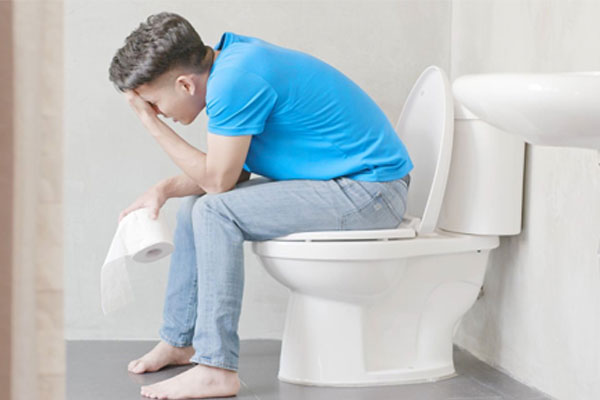Constipation

Constipation is infrequent bowel movements or difficult passage of stools that persists for several weeks or longer. Constipation is generally described as having described as having fewer than three bowel movements a week.
Symptoms
- Difficulty passing stool
- Straining when passing stool
- Lumpy, dry, or hard stool
What causes constipation?
- Aging, older adults tend to be less physical active, have underlying diseases, and eat poorer diets
- Poor diet frequently causes constipation. Dietary fiber and adequate water intake are necessary to help keep stool soft.
- Eating disorder
- Not enough water and fiber in your diet
- Getting little or no physical activity
- Some medications can also increase the risk or constipation
- Antacids that contain calcium
- Antacids that contain aluminum
- Tricyclic antidepressants
- Underlying medical problems
- Certain diseases, such as stroke, Parkinson’s disease , diabetes
- Problems with the colon or rectum, including intestinal obstruction, irritable bowel syndrome (IBS)
- Hormonal problems, including an underactive thyroid gland
- Having a mental health condition such as depression or an eating disorder
When should I call my doctor?
Call your doctor right away if you have sudden constipation with belly pain or cramping and you aren’t able to poop or pass gas at all.
- You have blood in your stool
- You’re losing weight even though you’re not trying to
- You have severe pain with bowel movements
- You have abdominal pain
Your doctor may recommend some tests to find the cause of your constipation
- Blood tests
- Colonoscopy
- Sigmoidoscopy
How to treat and prevent constipation?
Changing your diet and increasing your physical activity level are the easiest and fastest ways to treat the prevent constipation. Try the following techniques:
- Eat well-balanced diet, include plenty of high-fiber foods in your diet, including beans, vegetables, fruits, whole grain cereals and bran
- Drink plenty of fluids
- Stay as active as possible and try to get regular exercise
- try to create a regular schedule for bowel movements, especially after a meal
*The above information is for reference only, please consult your doctor for detail.

 3405 8288
3405 8288
